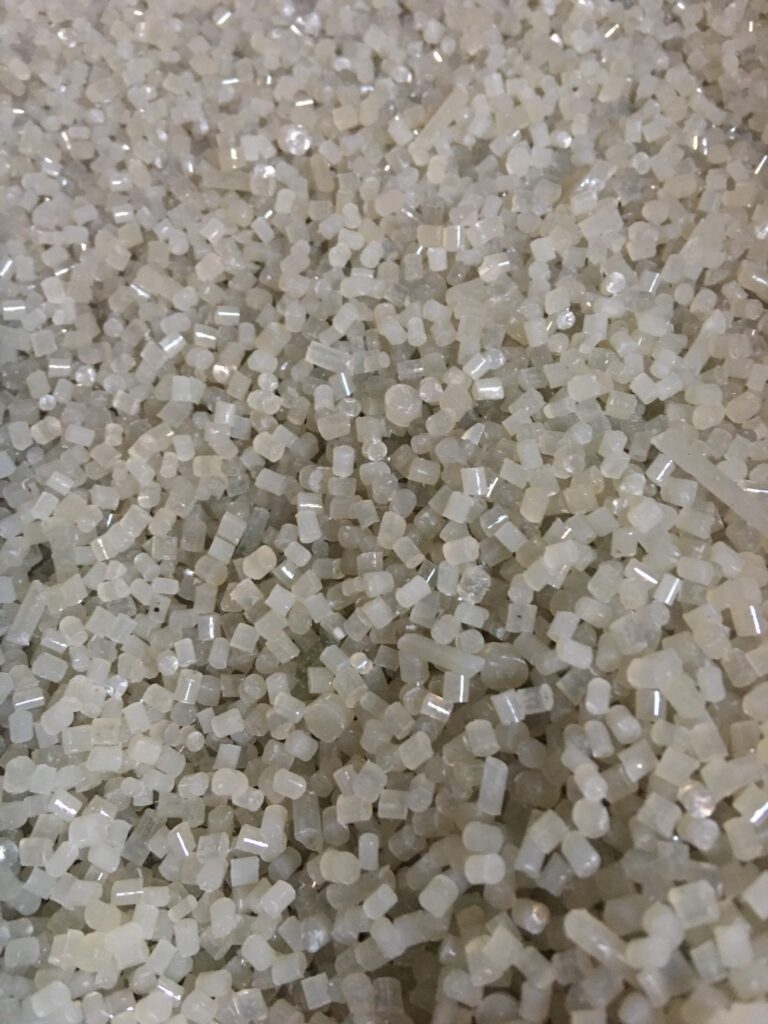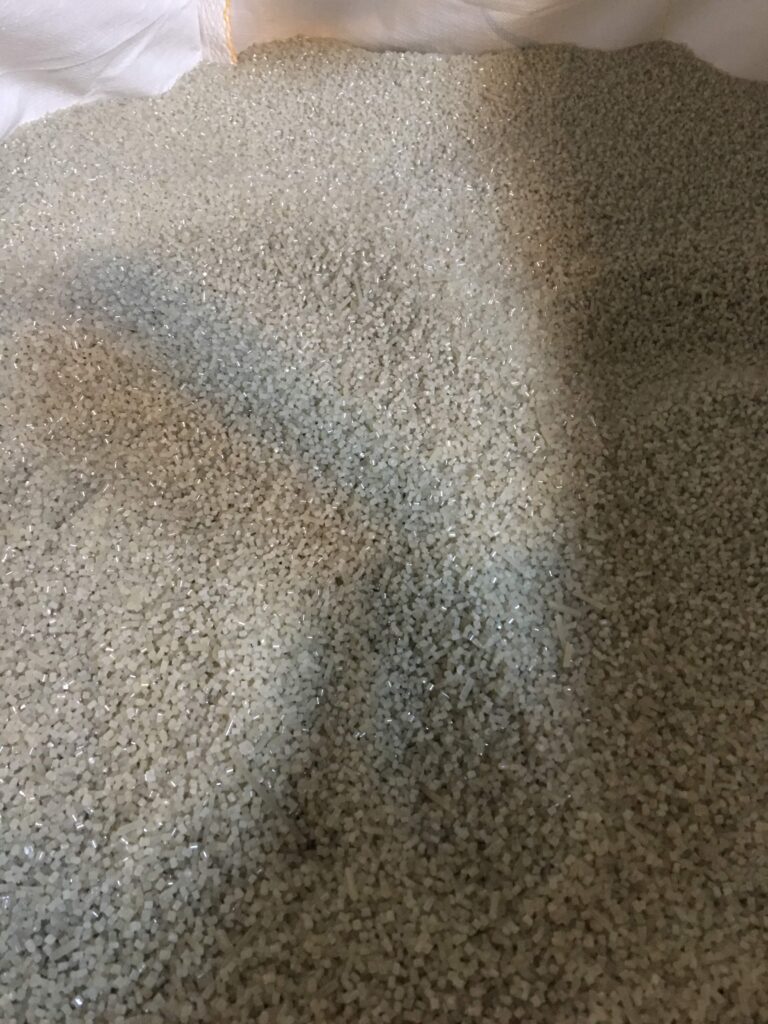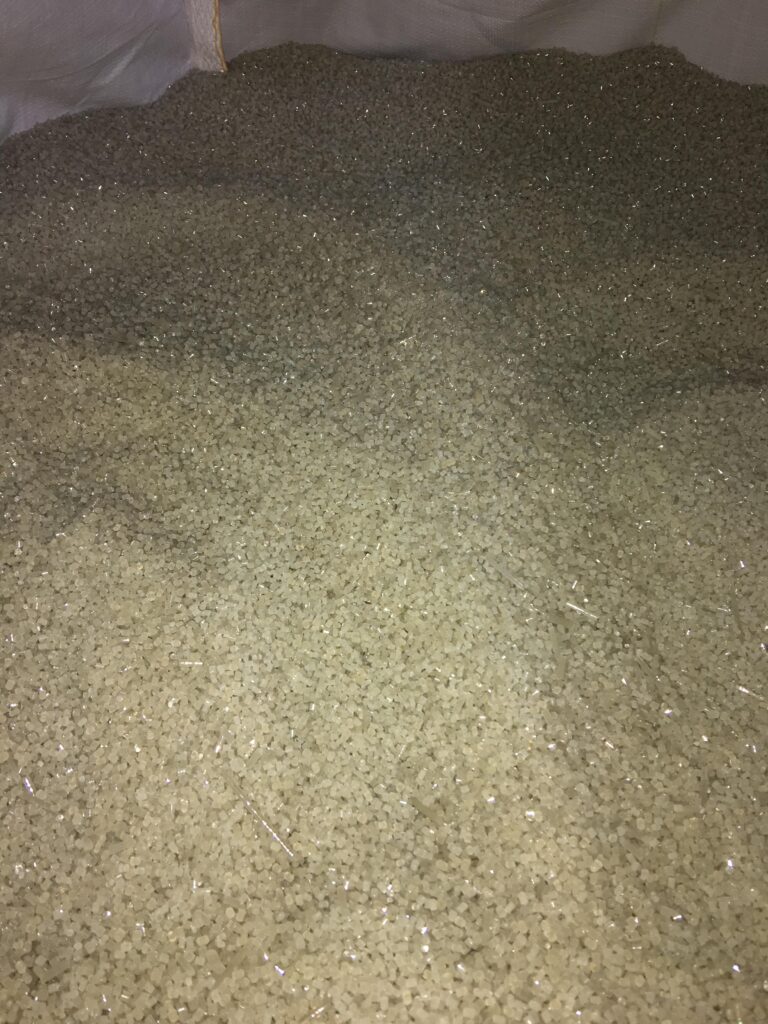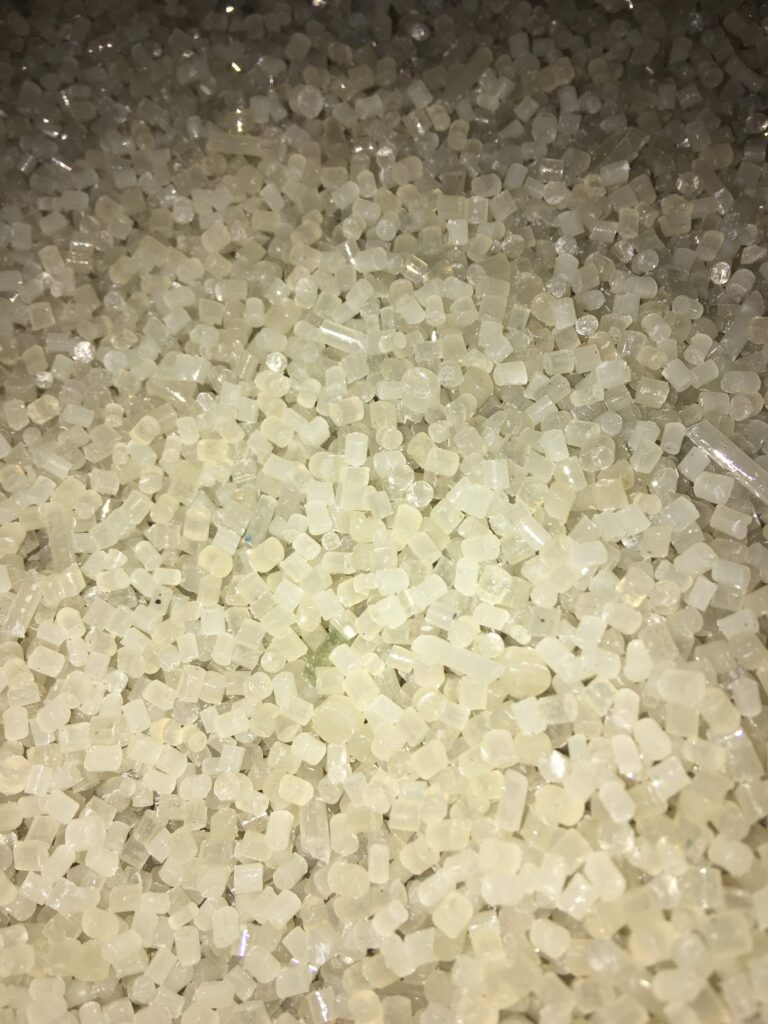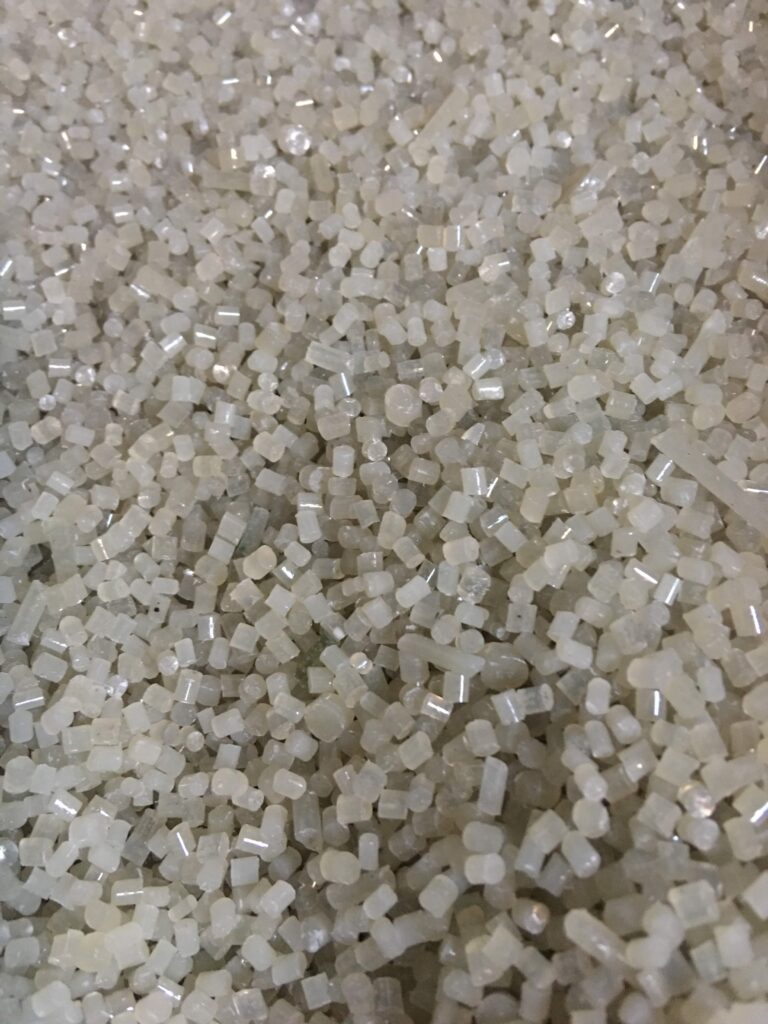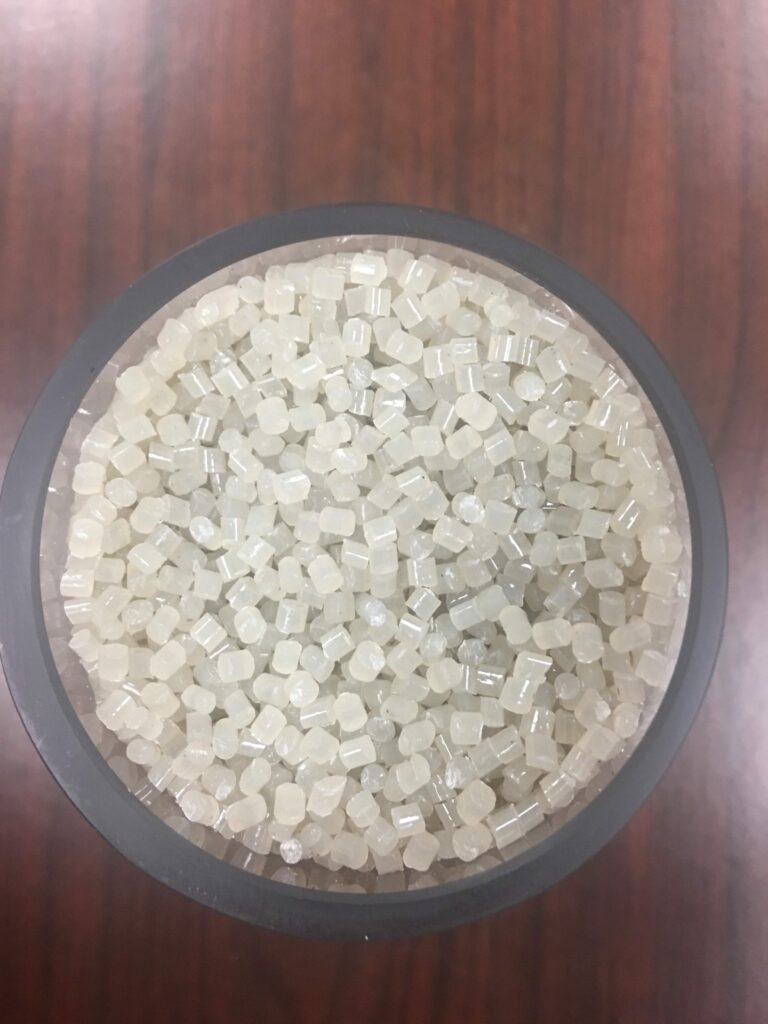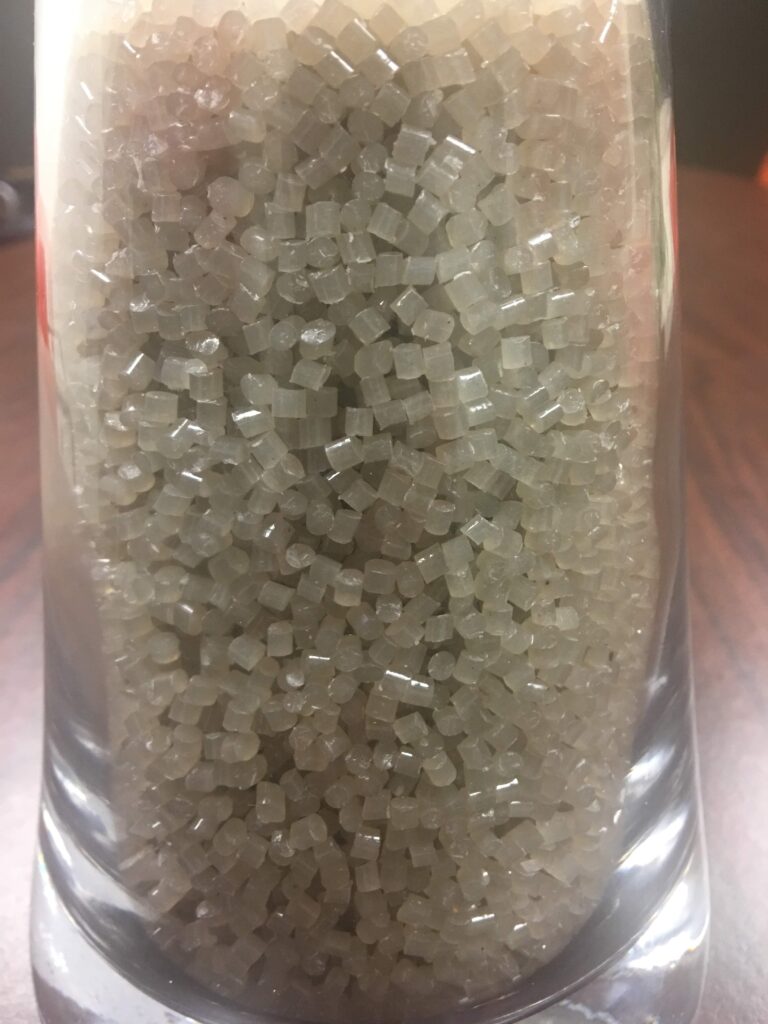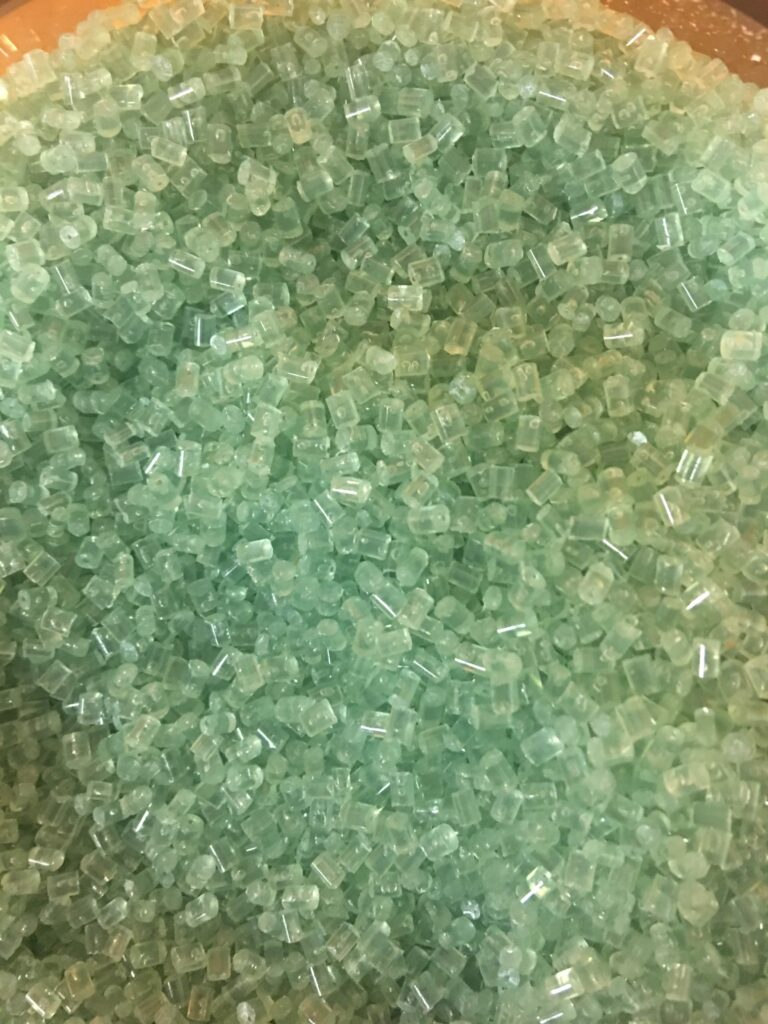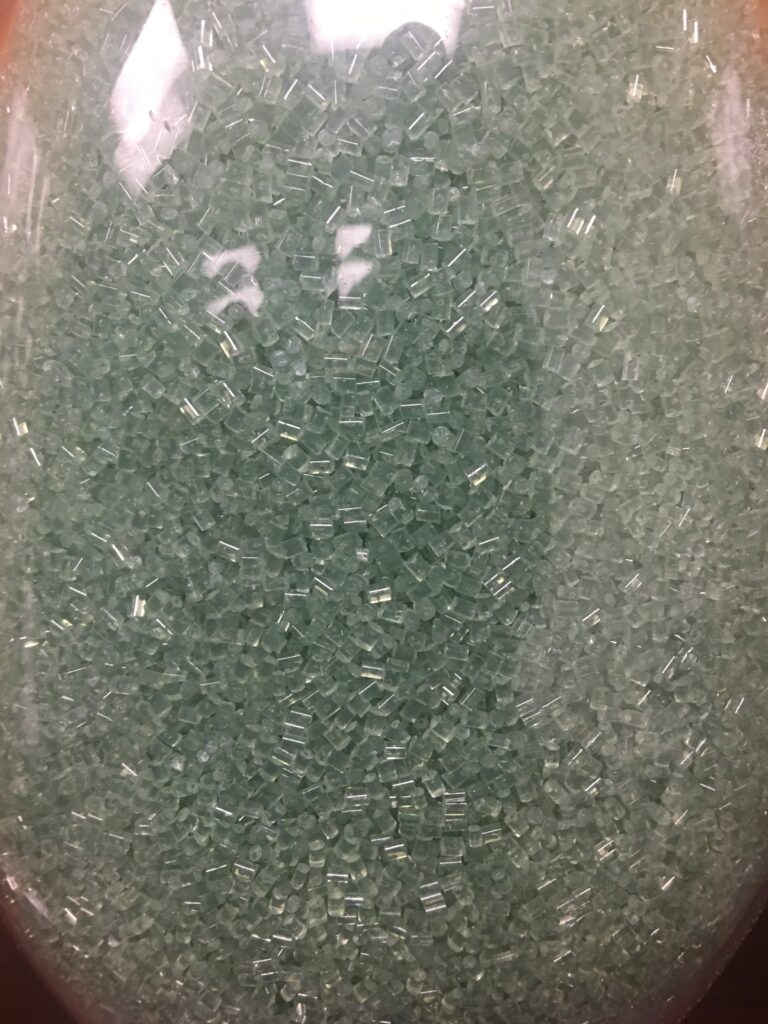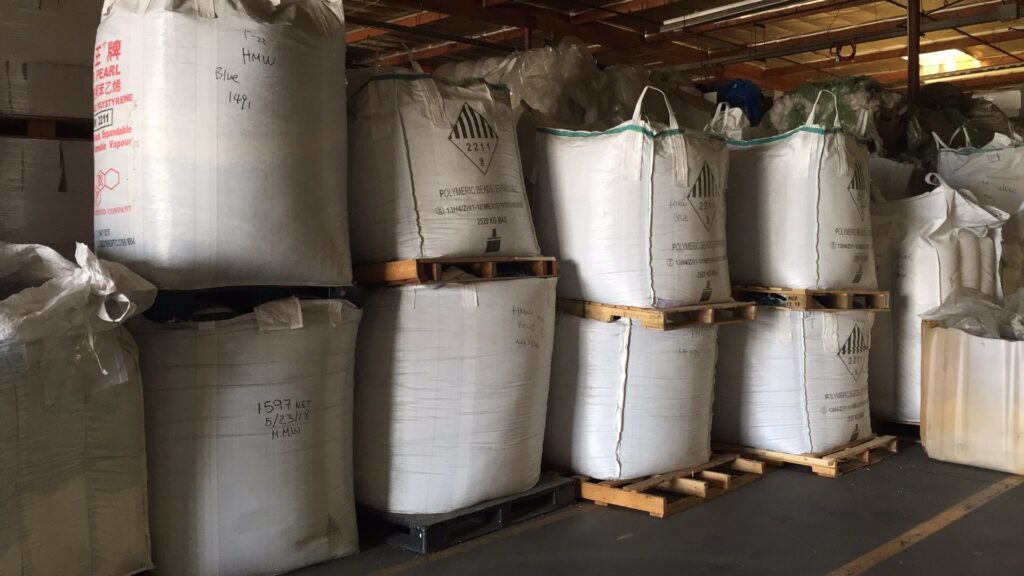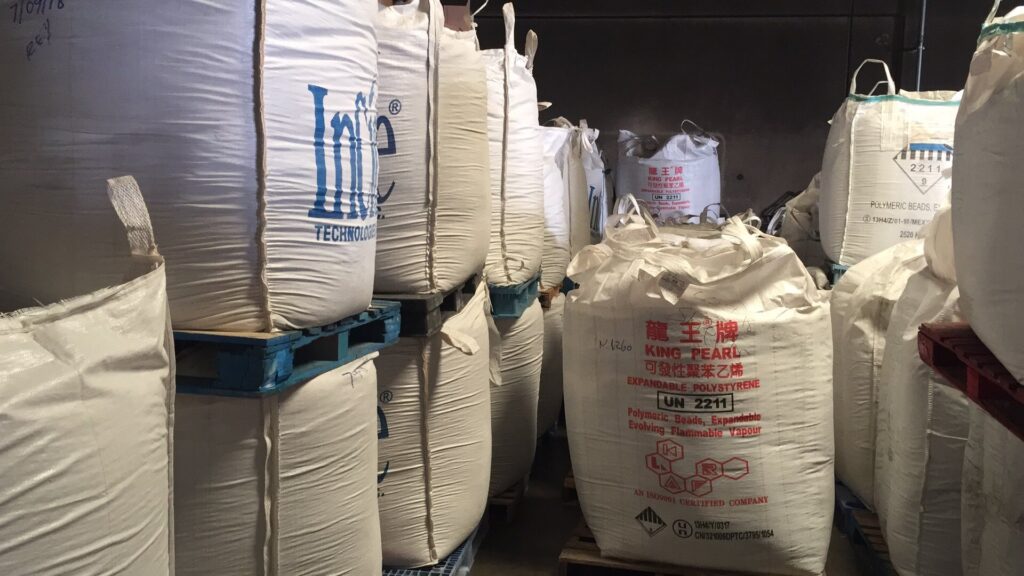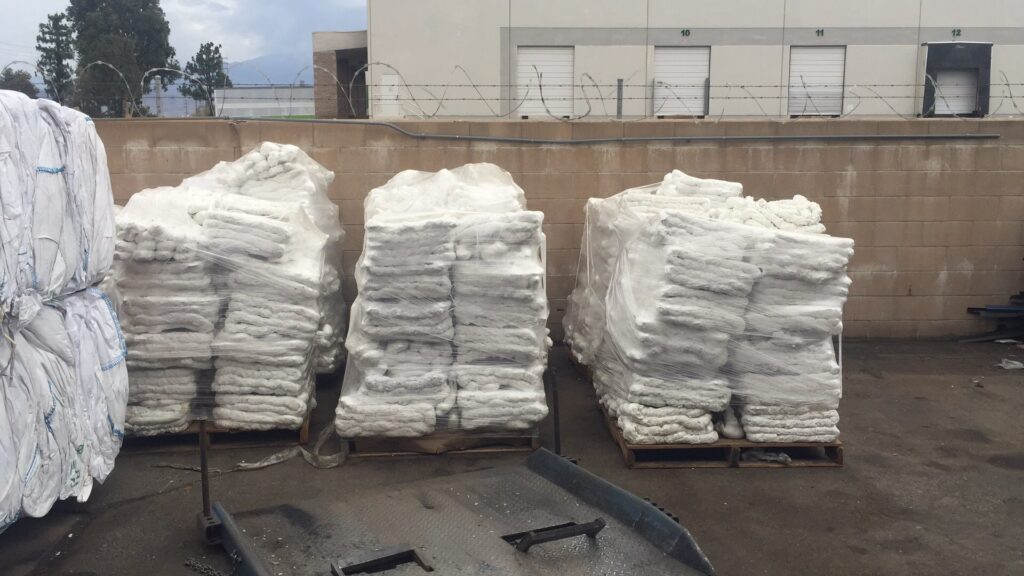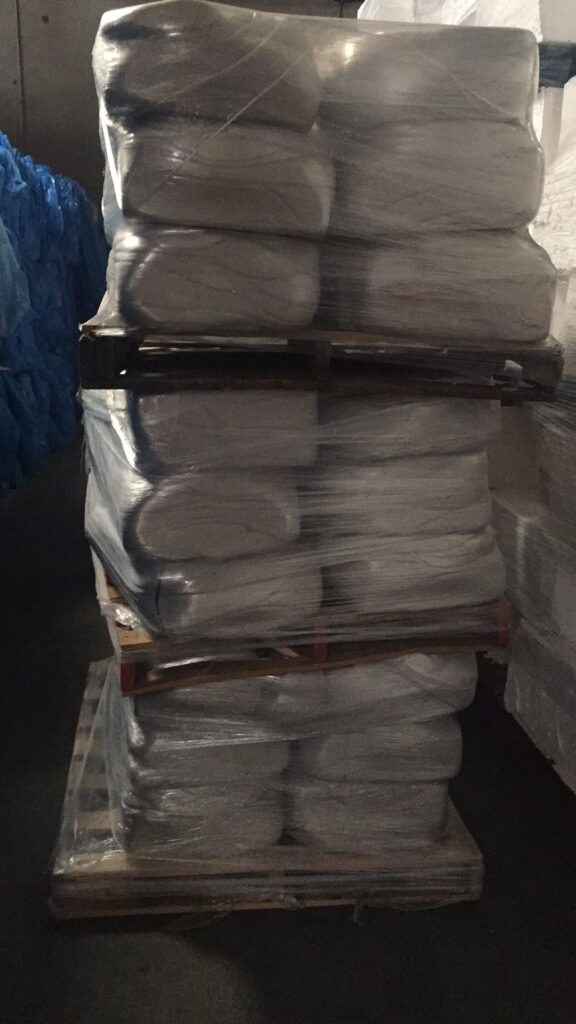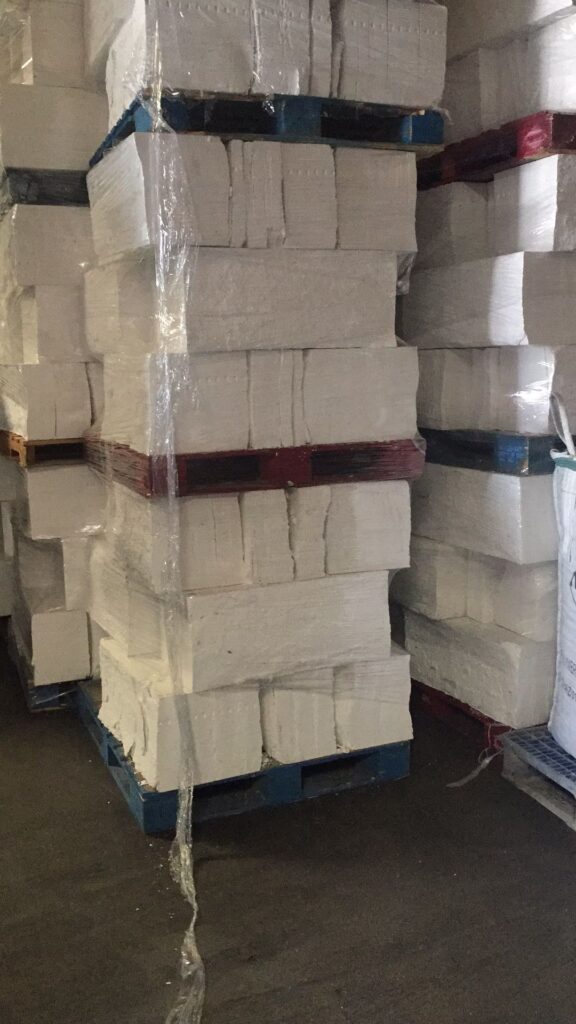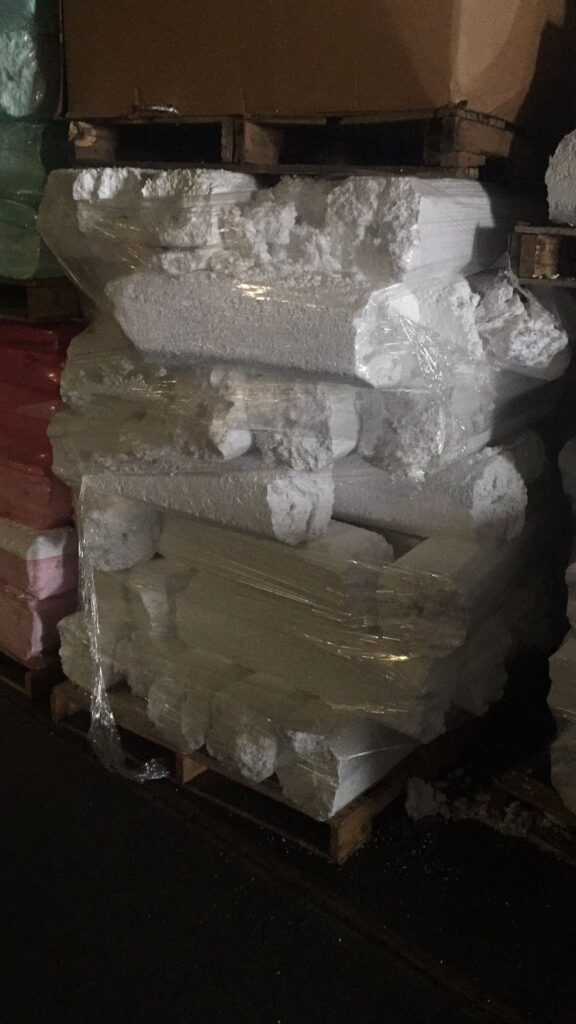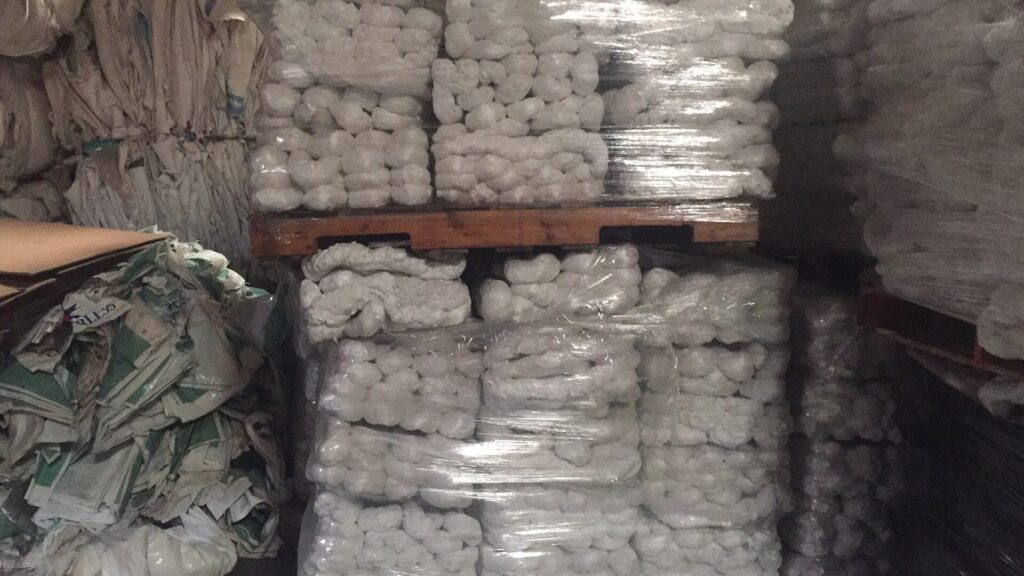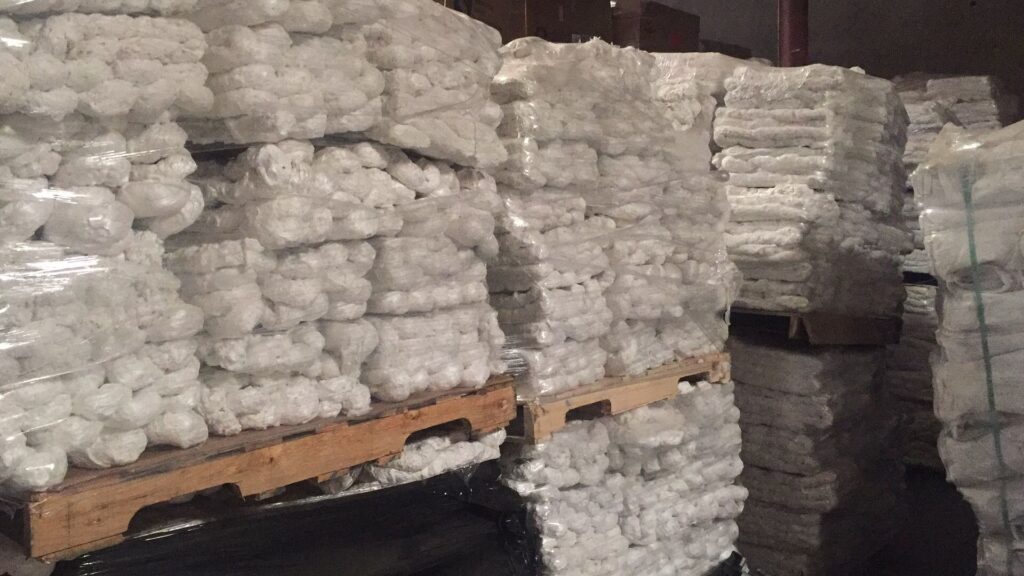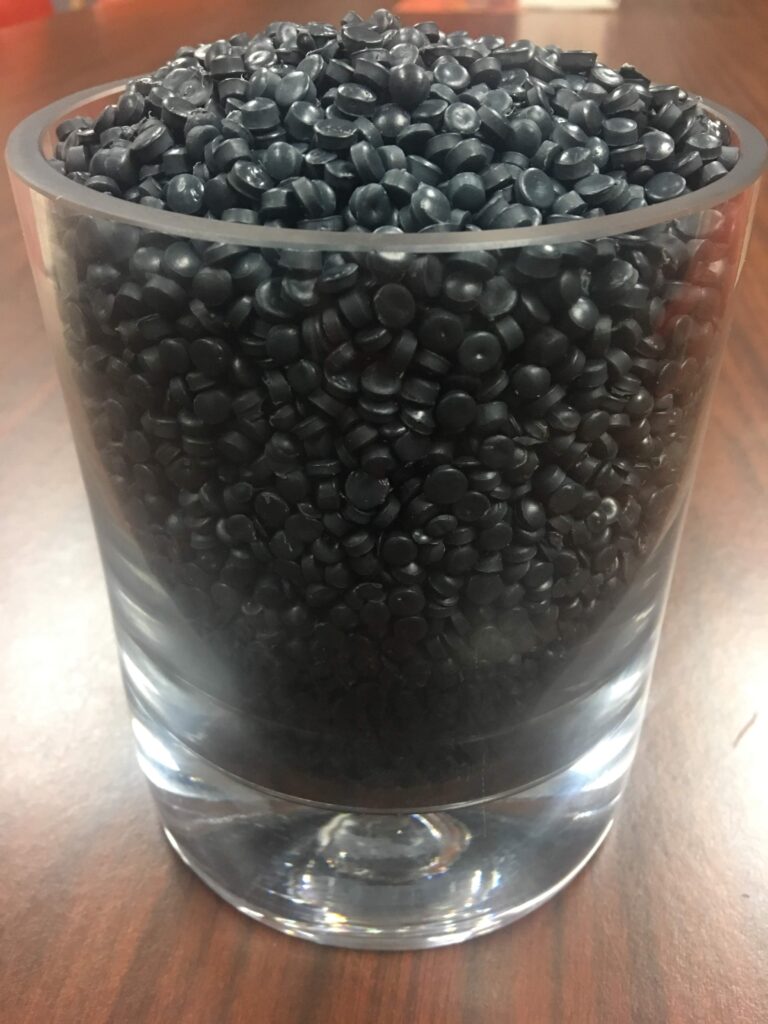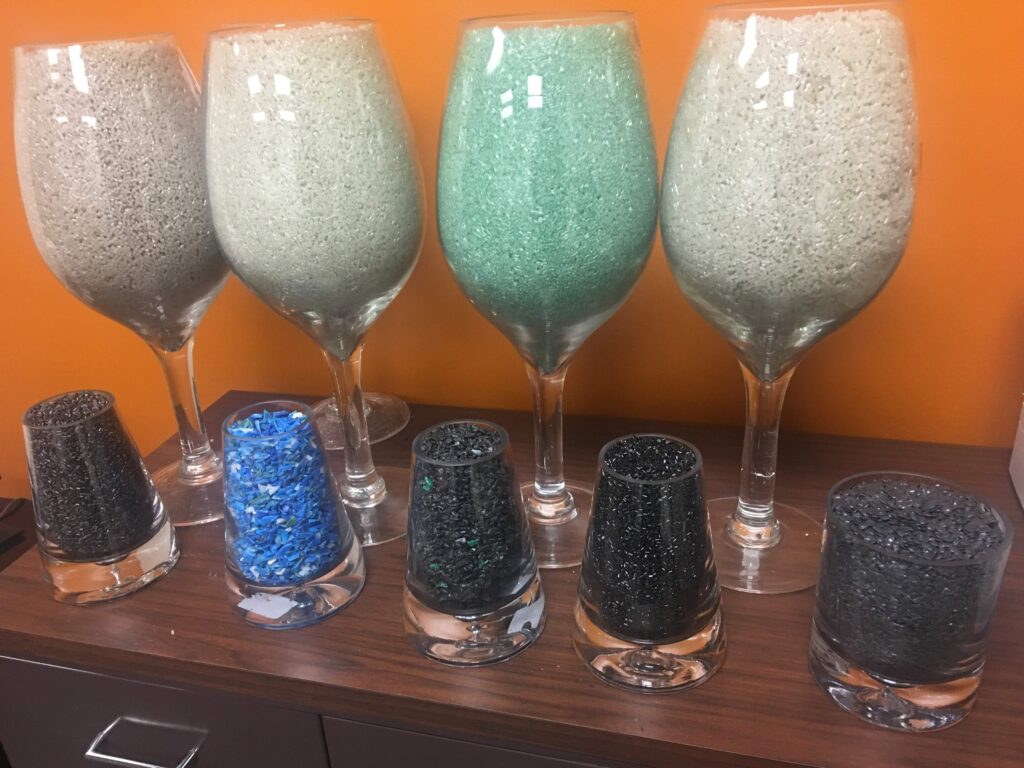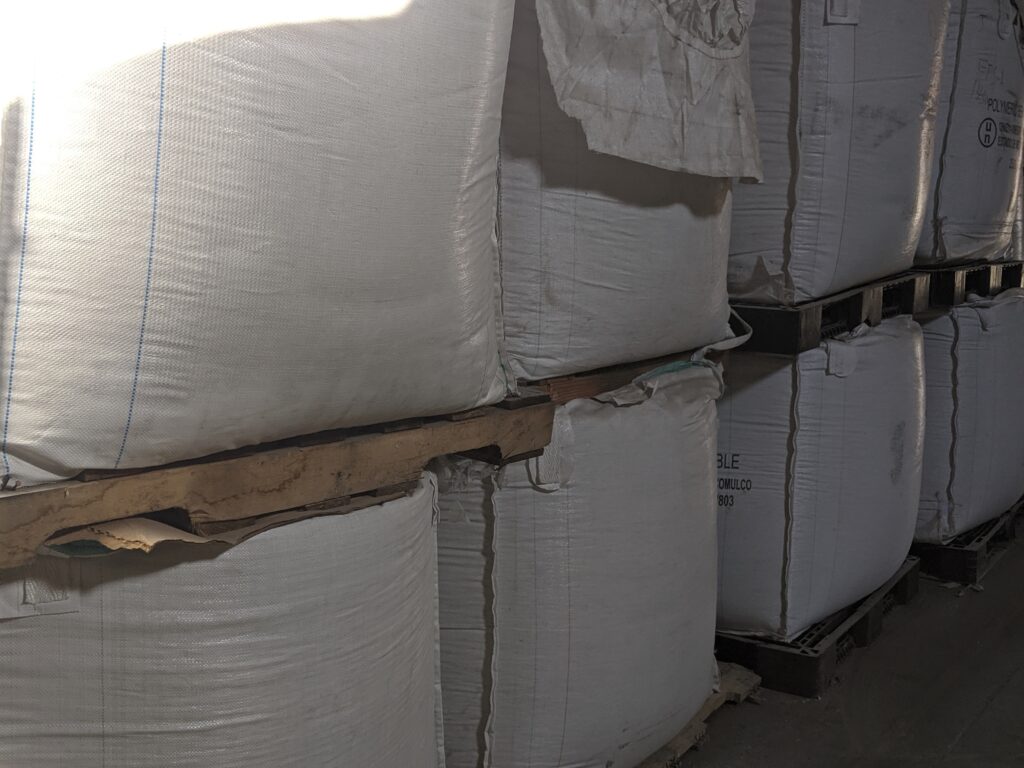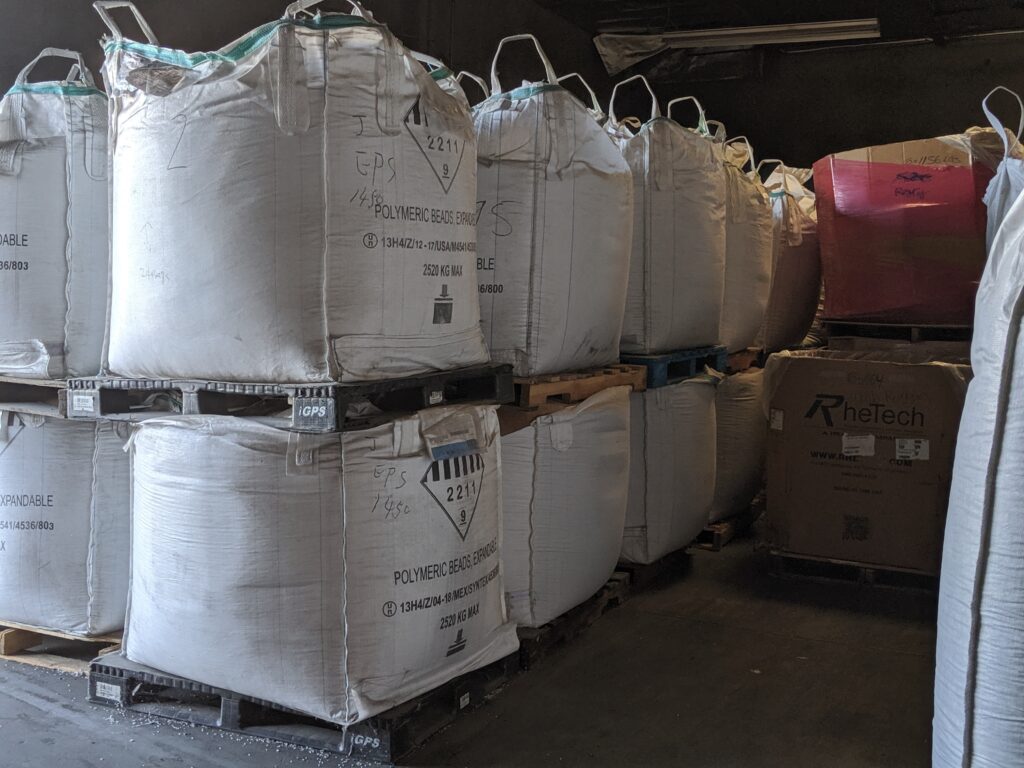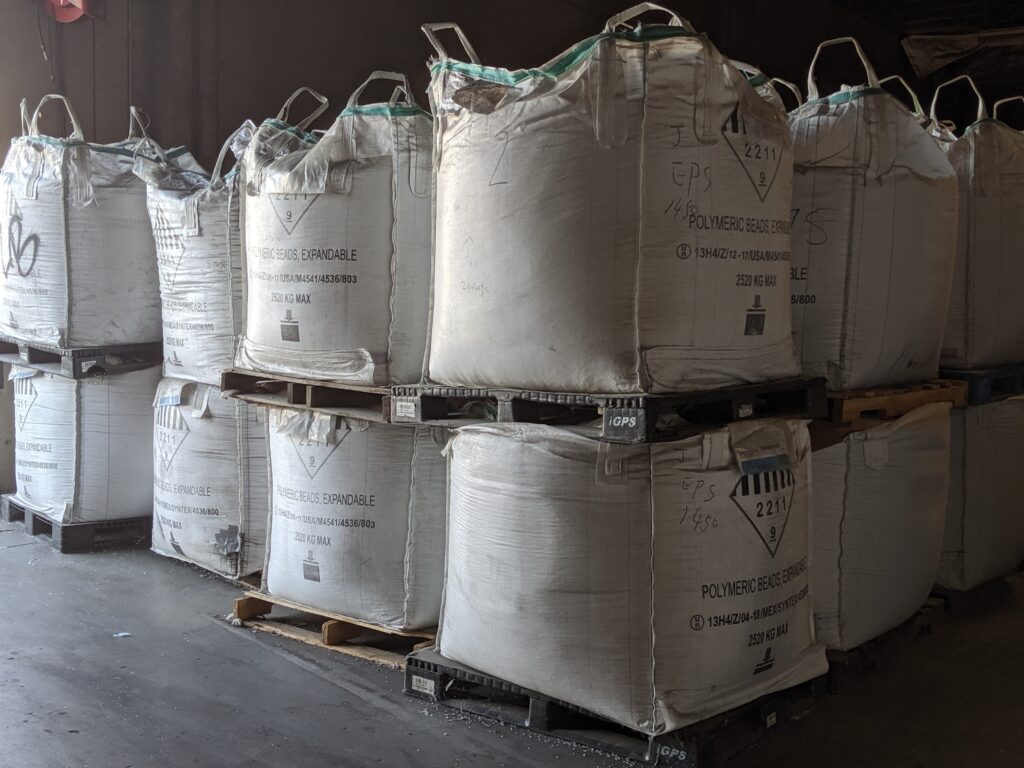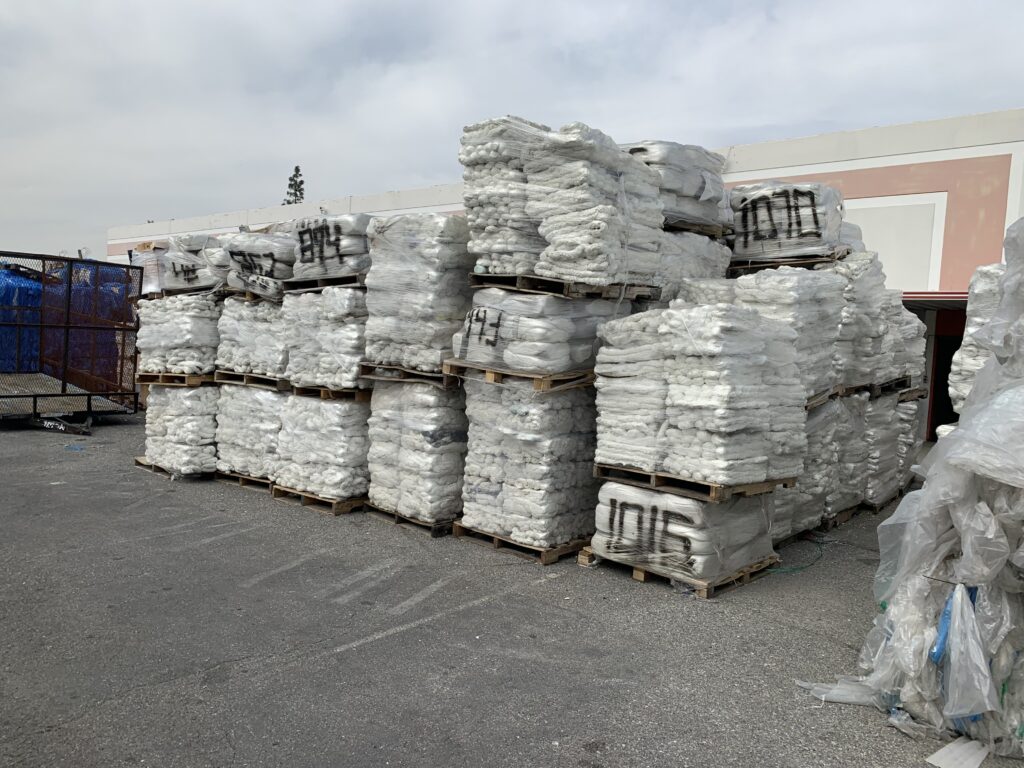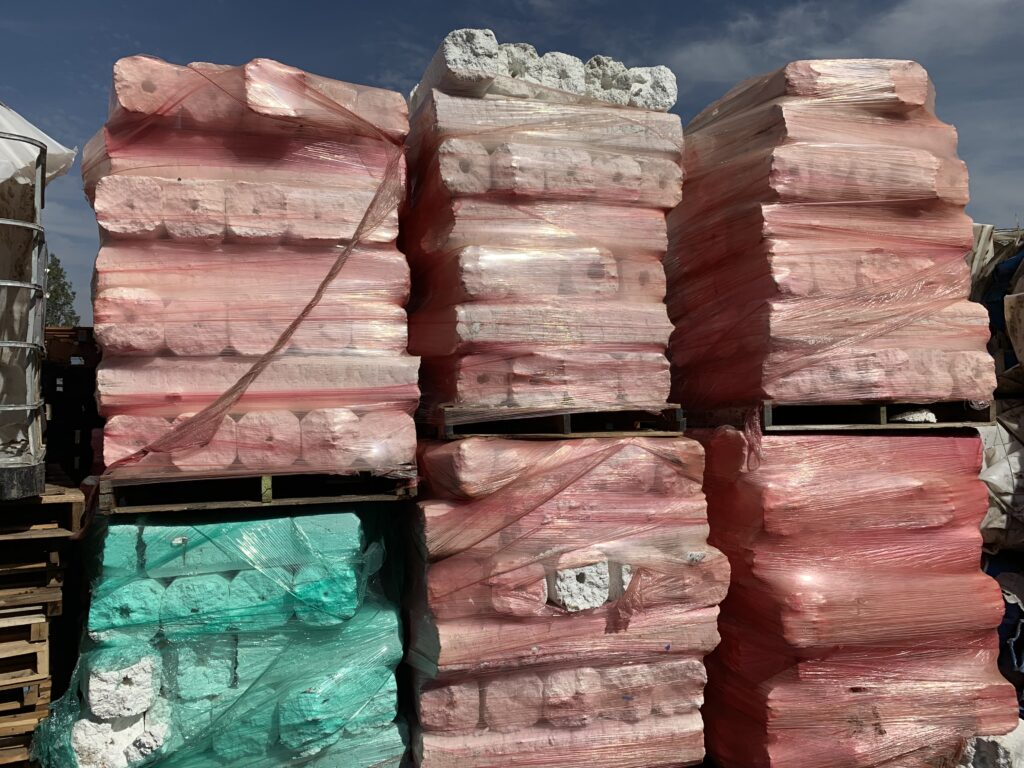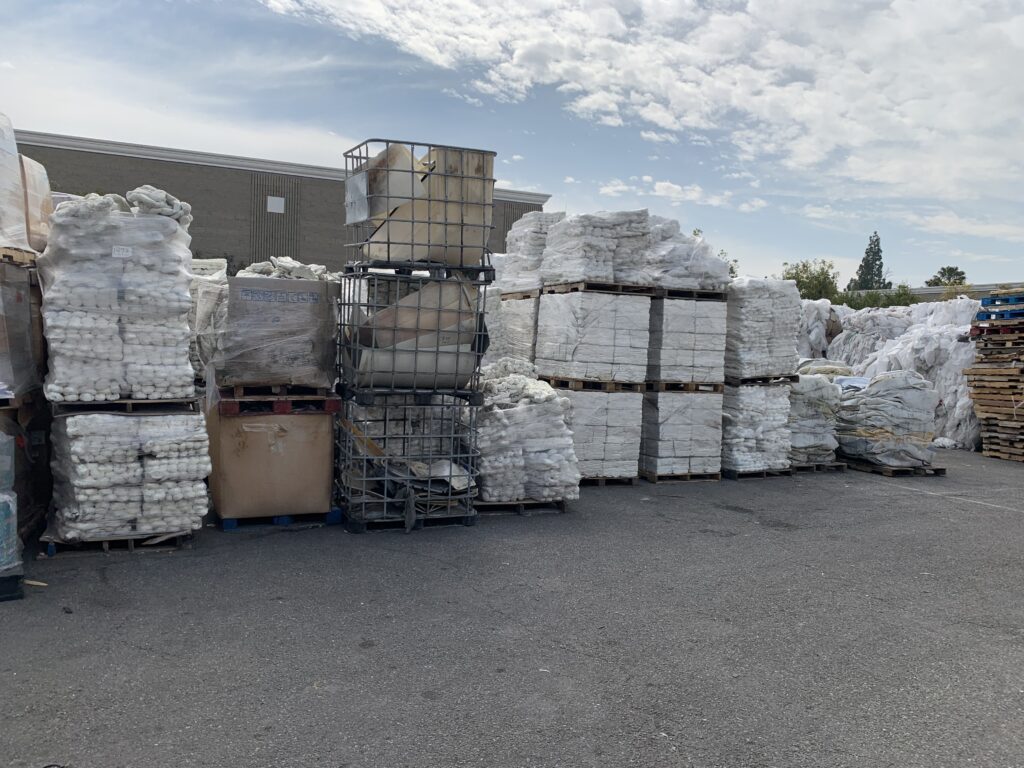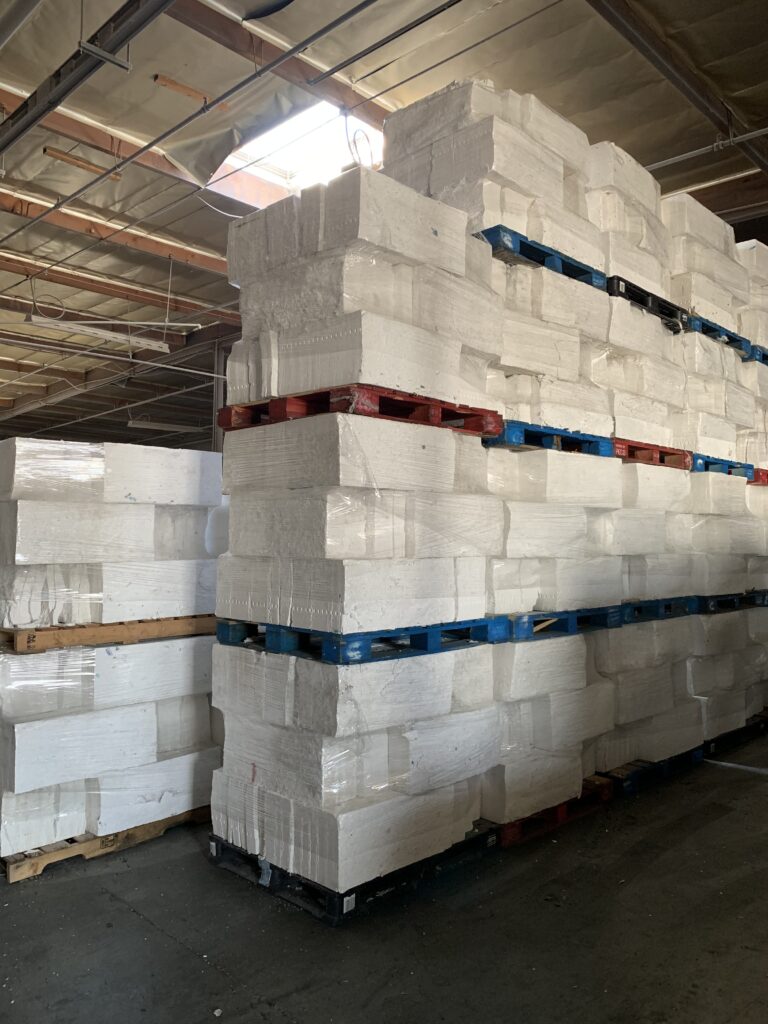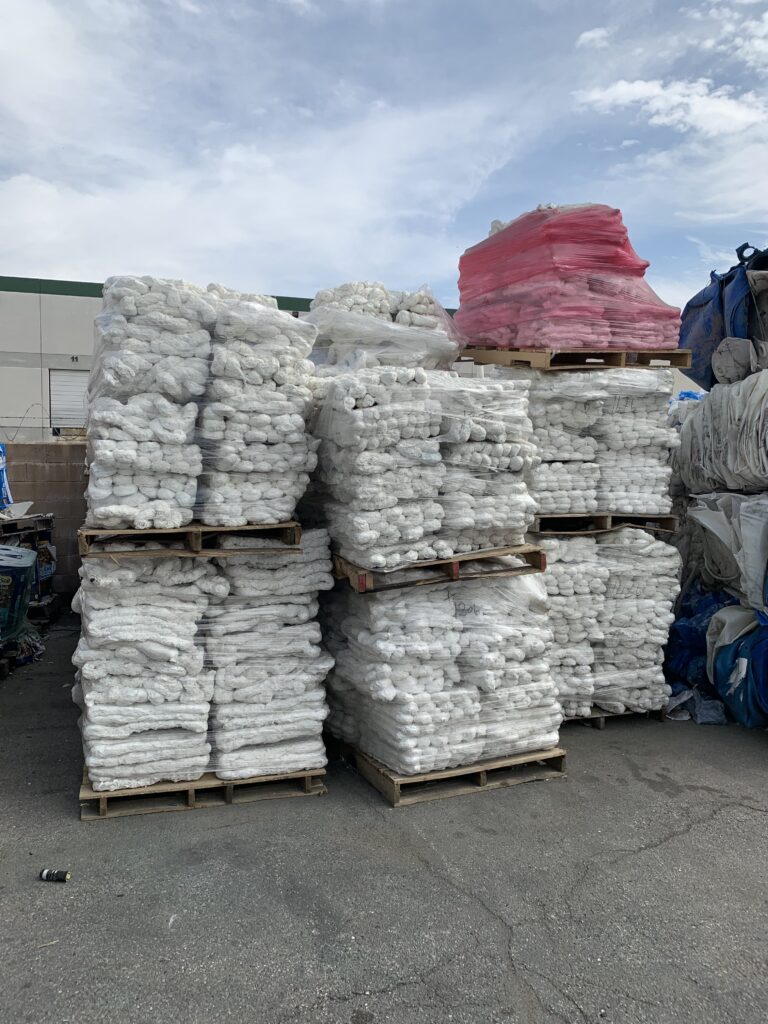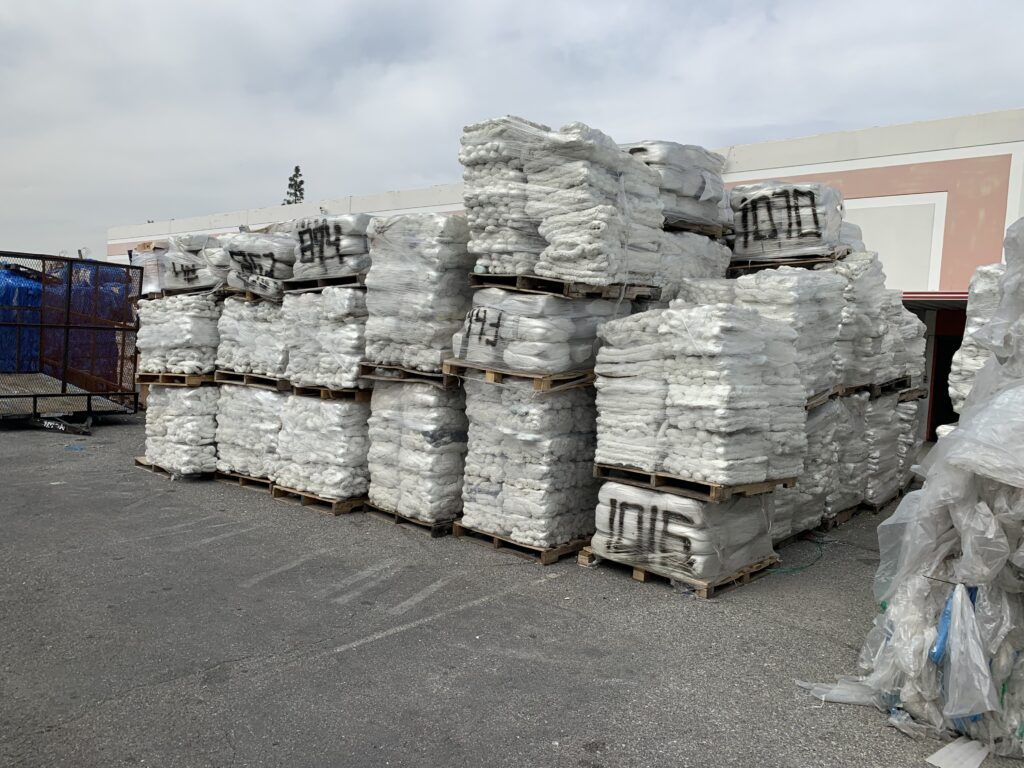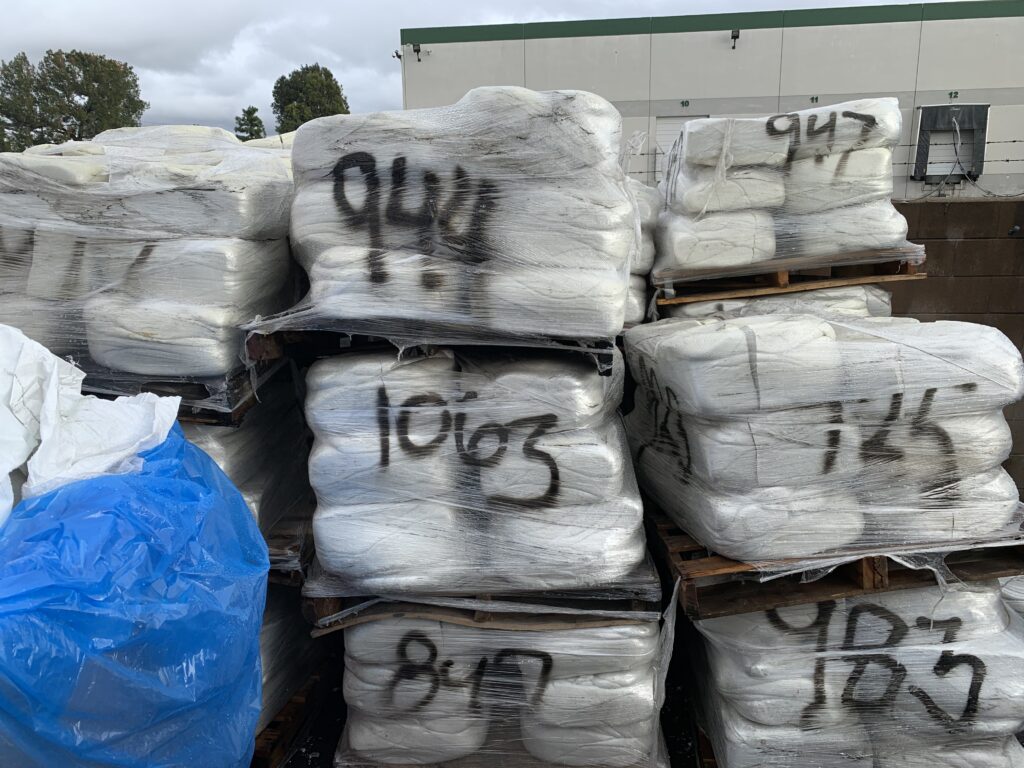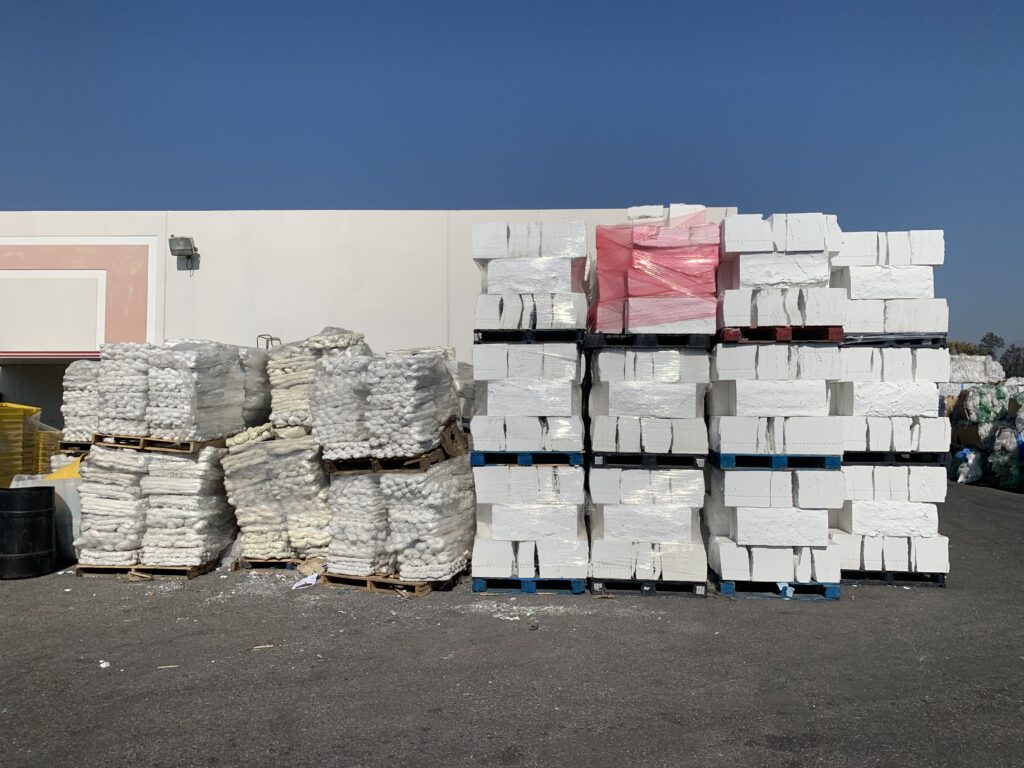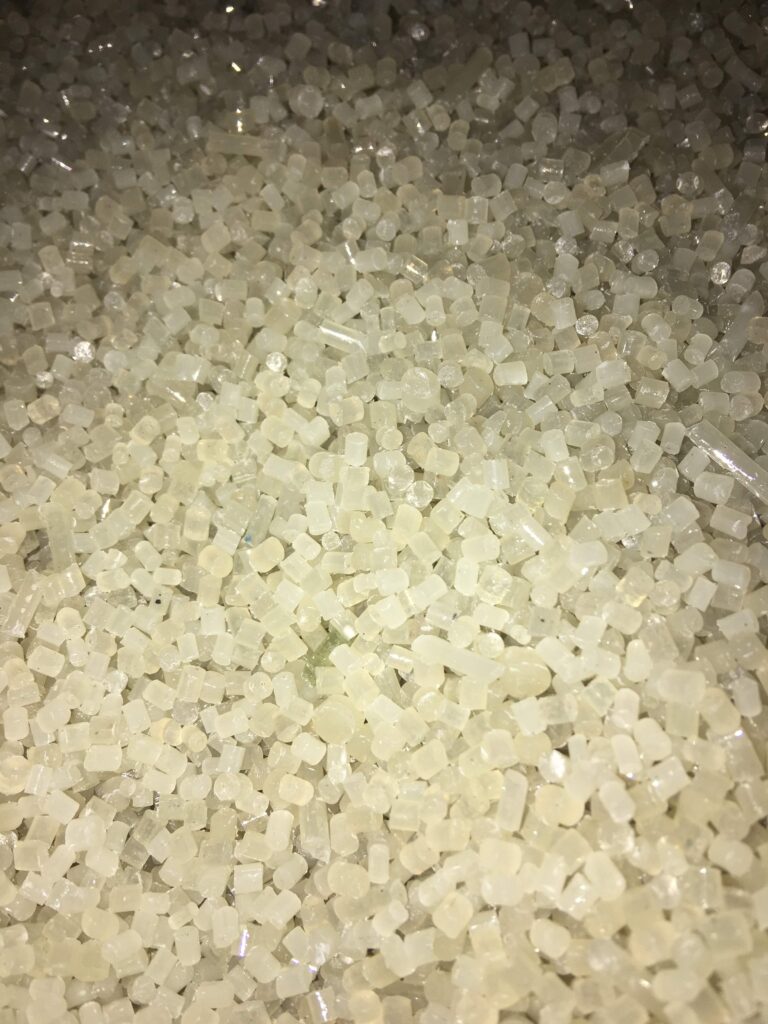Expanded polystyrene (EPS) is a rigid and tough, closed-cell foam with a normal density range of 11 to 32 kg/m3. It is usually white and made of pre-expanded polystyrene beads. EPS is used for many applications e.g. trays, plates, bowls and fish boxes. Other uses include molded sheets for building insulation and packing material (“peanuts”) for cushioning fragile items inside boxes. Sheets are commonly packaged as rigid panels (size 4 by 8 or 2 by 8 feet in the United States).
Due to its technical properties such as low weight, rigidity, and formability, EPS can be used in a wide range of applications. Sales are likely to rise to more than US$15 billion by 2020.
Thermal conductivity is measured according to EN 12667. Typical values range from 0.032 to 0.038 W/(m·K) depending on the density of the EPS board. The value of 0.038 W/(m·K) was obtained at 15 kg/m3 while the value of 0.032 W/(m·K) was obtained at 40 kg/m3 according to the data sheet of K-710 from StyroChem Finland. Adding fillers (graphites, aluminium, or carbons) has recently allowed the thermal conductivity of EPS to reach around 0.030–0.034 (as low as 0.029) and as such has a grey/black colour which distinguishes it from standard EPS. Several EPS producers have produced a variety of these increased thermal resistance EPS usage for this product in the UK & EU.
Call and ask for Pricing 909-693-1453 or visit our Scrapo Links
https://scrapo.co/p/2997/eps-pellets

